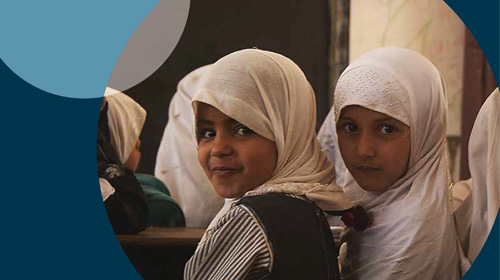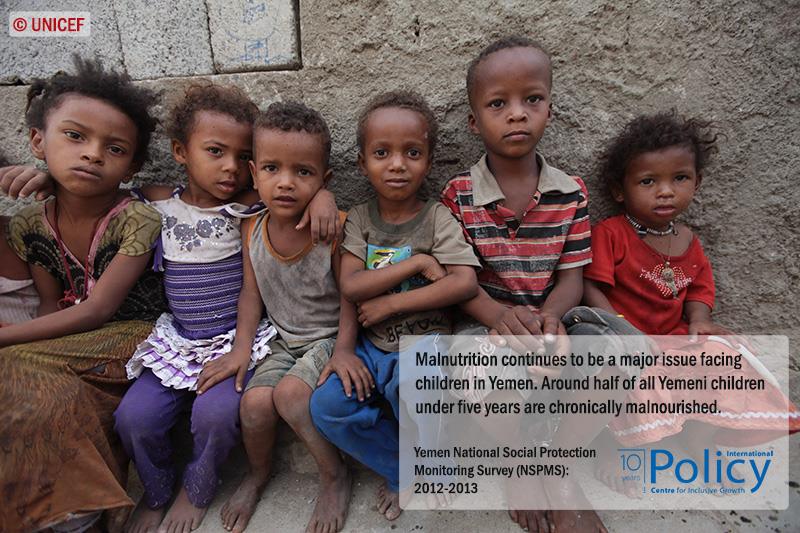New Website Focuses on the Achievements and Challenges of Yemen in the Area of Social Development

The Republic of Yemen is one of the oldest centers of civilization in the Near East and it was the first country in the Arabian Peninsula to grant women the right to vote. Today, Yemen is one of the poorest in the Middle East and North Africa region and half of the population lives below the poverty line.
The country faces many developing challenges in areas such as education, health, and access to water and sanitation, to name a few. For instance, one third of Yemen’s poorest households have to walk more than 30 minutes to access water. In the country, approximately 29% of households have access to water inside the dwellings. In urban areas, access reaches 48% of households compared to 23% in rural areas.
The situation is even more difficult for children. Malnutrition remains a major problem for children in Yemen, with around half of all children under age five being chronically malnourished. Two-fifths of them - or 1.1 million children - suffer from stunting. With regards to education, only half of the children from the poorest families are enrolled in basic education, with major disparities between the poorest girls.
These are some of the results of the Yemen’s National Social Protection Monitoring Survey (NSPMS). To help understand the realities, achievements and challenges of the country in the area of social development, the International Policy Centre for Inclusive Growth (IPC-IG) released a report (pdf) and a website on this longitudinal study, covering the period of October 2012 to September 2013. The project was led by UNICEF in Yemen and the Ministry of Planning and International Cooperation (Mopic), in partnership with the IPC-IG and Interaction Development. The report also provides extensive information and reflects upon the inequalities in Yemen that have a real impact on the poor and vulnerable, especially children, and prevent them from having access to basic social services.
In the website, researchers, policy makers and other professionals may have open access to recent data that bring together administrative data of the Yemeni program Social Welfare Fund (SWF) with the survey data.
Also read: "Associated Factors Contributing to Child Stunting in Yemen"
